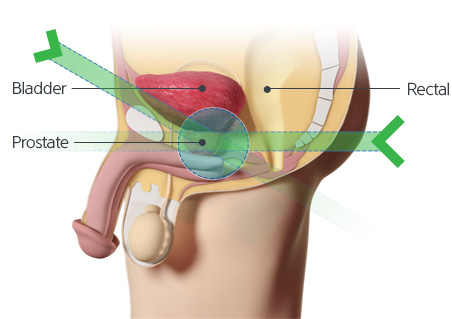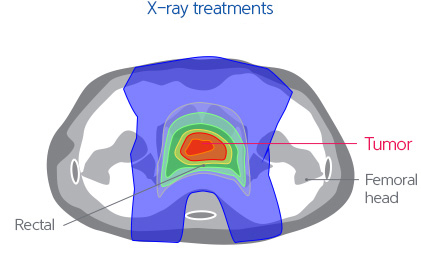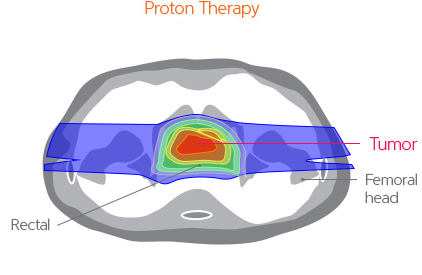
Proton therapy for prostate cancer
We would like to introduce the details of proton therapy for prostate cancer.
- 01.
- Which cases of prostate cancer can be applied with proton therapy?
-
Radiotherapy is a non-invasive method to treat prostate cancer and it is one of the most effective treatments with low risk of side effects. It also can be used as a supplementary treatment.
Since most of the prostate cancer patients are elderly patients, there are many cases where the patients may have several types of diseases. Therefore, proton therapy can be applied in such cases where surgical operation implementation may be difficult due to risks associated with theoperation or anesthesia side effects.
-
Proton therapy can be applied after the surgical operation.
Furthermore, proton therapy can be applied in cases where radiotherapy is needed after prostate operation or if recurrent cancer has occurred after the prostate surgery. Proton therapy has the same effects as X-ray treatments with lower risk of side effects.

[Risks of side effects near the normal organs such as the bladder and rectal increase during prostate radiotherapy]
- 02.
- What are the advantages of proton treatment when treating prostate cancer?
-
It can minimize the amount of radiation transferred to the surrounding normal tissues and deliver high level of radiation to the cancer cells.
When treating prostate cancer, it is more effective if high level of radiation is used. However,when using high radiation through X-ray treatments, it is inevitable to transfer some radiation to the closely located bladder and rectum. On the contrary, the proton therapy can minimize the radiation transferred to the normal tissues while maximizing treatment effects. Further, it decreases the low-dose radiation exposure to the normal tissues which sometimes may bethe cause to secondary cancer.

 [Proton Therapy compared to the X-ray treatments to treat prostate cancer]
[Proton Therapy compared to the X-ray treatments to treat prostate cancer]



